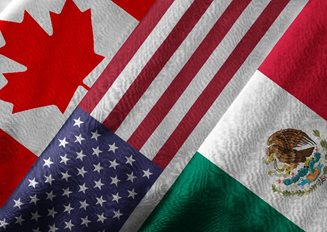By Brenda Cordova, Mexico Attorney
Currently, there are over 6000 companies operating under the IMMEX regime in Mexico.[1] The IMMEX play an important role in the Mexican economy, and therefore, the Mexican government promotes them among foreign investors by providing several benefits and advantages for companies that participate in the program.
Generally, companies participating in IMMEX can temporarily import raw materials, parts, and components that will be used to produce a finished product typically for subsequent export. One of the biggest advantages of participating in IMMEX is that upon the importation of materials into Mexico, the imported materials may be permitted to enter without having to pay the applicable customs duties. Similarly, companies participating in IMMEX may also take advantage of NAFTA (North American Free Trade Agreement), which allows entities located in the NAFTA territory (Mexico, Canada and the United States) to import NAFTA originating materials at favorable duty rates.
As one may recall, NAFTA became effective on January 1st, 1994, however, some of its provisions did not become effective until later dates. One such provision is Article 303, which became effective on January 1st, 2001. Under this article, when an IMMEX imports non-NAFTA originating materials into Mexico to be used in the production of finished goods for export to another NAFTA country, the IMMEX must pay duties on the non-NAFTA originating materials, and may not be granted a refund, reduction, or waiver of duty liability that exceeds the lesser of: a) the import duties on the imported materials into Mexico, or b) the import duties payable to the NAFTA country of destination of the finished goods. This rule is commonly referred to as the “lesser of the two” rule.
At the specific time materials are imported into Mexico for use in the production of finished goods destined for a NAFTA country, an IMMEX can either: 1) pay the duties on the non-NAFTA materials up front or, 2) request that Mexican Customs defer payment of duties on the non-NAFTA materials. The amount the IMMEX company will ultimately pay varies depending on the import duties applicable to the finished goods shipped into the other NAFTA country.
There are various exemptions to the application of Article 303. However, determining whether an exemption applies to your company will require a thorough review of your products and operations, as well as other considerations.
We anticipate that the Mexican Government will start reviewing Article 303 operations in the near future. If your company has not received a notification from the Mexican Government regarding Article 303 yet, we recommend that you conduct a review of your company’s operations to determine how this could impact your business in Mexico. Please note that the application of Article 303 is completely separate, and different, from the NAFTA origin qualification rules for the finished good. Article 303 is a highly complex and technical law, and the Mexican Government’s current interpretation can be ambiguous or vague.
[1] IMMEX stands for Industria Manufacturera, Maquiladora y de Servicios de Exportación (Formerly known as maquiladoras and/or PITEX).



























